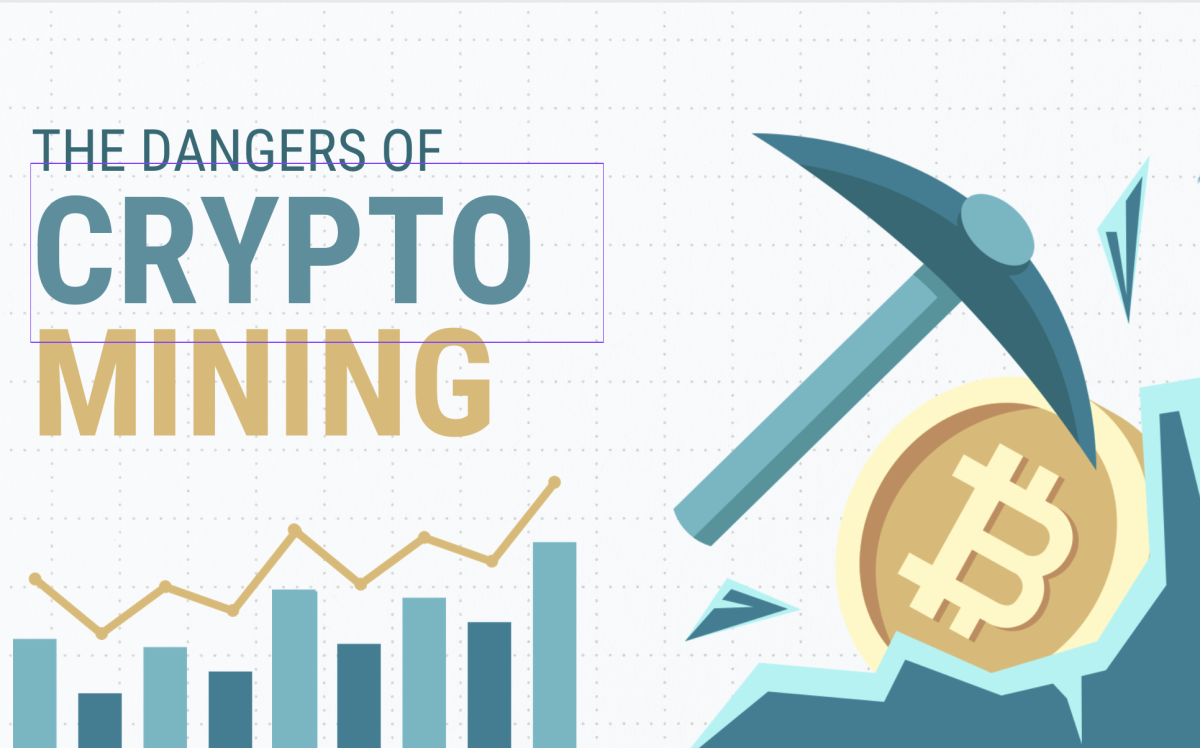Cryptocurrency and Bitcoin have changed the landscape of money in the modern world. Created in 2008, Bitcoin is the first decentralized cryptocurrency, meaning it is not regulated by central banks. Bitcoin has been a source of income for many, but the negative environmental effect of the currency is rarely talked about.
The production and mining of Bitcoin is a carbon-intensive process that utilizes a large amount of energy. Half of the power used to generate bitcoin has been from fossil fuels. Many scholars urge bitcoin mines to switch to renewable energies such as solar and wind.
Much of the technology and computers used to mine Bitcoin have a short lifespan, producing a lot of electronic waste. The computers lack reliability and need replacing consistently.
Bitcoin uses a computing strategy called PoW, a very energy intensive way to farm it. Many people urge Bitcoin investors to switch to PoS, a more energy conserving strategy, but there has been push back from people who use Bitcoin as their main source of income as PoW is a more efficient way to mine Bitcoin.
It is hard to find the exact amount of electricity used by Bitcoin, but scientists say that it took up a total of 0.4% of the world’s annual electricity use. The carbon emissions of all the Bitcoin farming in the world represented 0.2% of global emissions, which is the equivalent of the country of Greece.
Over the course of 2023, Bitcoin used a total of 1,600 gigaliters of water. This is a combination of water cooling for the computers and electricity generation for the electronics. Instead of using this much water for cooling, bitcoin oppositions urge they switch to dry cooling.
The amount of water consumed by bitcoin has been a huge total of 660,000 Olympic sized swimming pools. This amount of water would be enough to meet the needs of 300 million people living in sub-Saharan Africa.
“Our findings should not discourage the use of digital currencies. Instead, they should encourage us to invest in regulatory interventions and technological advancements that improve the efficiency of the global financial system without harming the environment”, said Kaveh Madani, Director of United Nations University.
Bitcoin companies must find a more environmentally sound way to mine bitcoin for it to be a lasting part of the cryptocurrency industry.























































